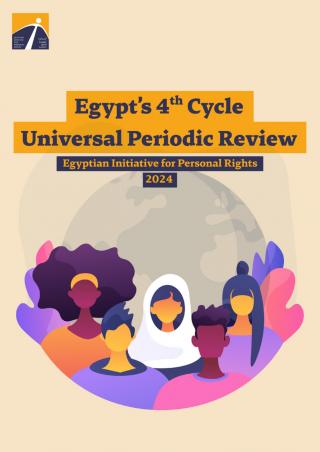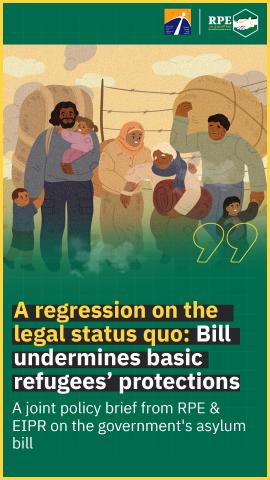The Egyptian Initiative for Personal Rights (EIPR) holds Public Prosecutor Mohamed Shawky and Minister of Interior Mahmoud Tawfik fully responsible for the health and safety of human rights lawyer Ibrahim Metwally, who is currently detained at
Programs: Criminal Justice
The Egyptian government must immediately lift the arbitrary travel bans and asset freezes imposed upon three directors of the Egyptian Initiative for Personal Rights (EIPR), a prominent Egyptian human rights organisation, solely for their legit
On 23 November, the Second Terrorism Circuit of the Cairo Criminal Court issued a decision in Case No. 620 of 2018, removing 716 names from the terror list, out of 1,524 people involved in the same case.
The undersigned human rights organizations strongly condemn the continued repression by Egyptian authorities against human rights defenders and lawyers, who are frequently targeted with frivolous charges to justify their prolonged arbitrary pre
During the month of October 2024, Egyptian courts issued death sentences to 7 defendants in 6 cases. Among them, 1 was issued final verdicts that could not be appealed.
The Egyptian Initiative for Personal Rights (EIPR) condemns the referral of its client, lawyer Ibrahim Metwally, 61, coordinator of ‘the Association of Families of the Forcibly Disappeared’, to trial in two of the three cases brought against hi
The Egyptian Initiative for Personal Rights (EIPR) has filed a complaint with the Supreme Judicial Council against the continued imposition of punitive measures against three of its directors, coinciding with the end of the fourth year of sanc





